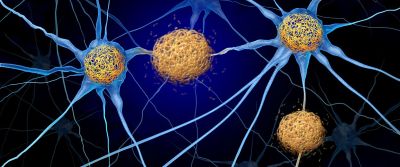
Jennifer Chambers | June 2025
Over a decade ago, scientists first noticed an interesting thing about cancer survivors: they appeared to have a materially lower risk of later developing Alzheimer’s. Since then, it has been unclear whether the effect is real, or due to a failure to properly account for the fact the cancer patients died before they were old enough to develop dementia; famously a disease of advanced age.
A new study1 using UK Biobank data includes observations from over 260,000 cancer survivors, following them for a median period of over nine years. It too suggests that cancer survivors were less likely to develop dementia, including Alzheimer’s. The findings reached statistical significance, with a central estimate that cancer caused an 11% reduction in risk of developing any dementia. 95% confidence intervals stretched between a 2% and 19% reduction. The results suggested more substantial risk reductions for cancers of the male genitals than any other type of cancer. Non-melanoma skin cancer and prostate cancer were also (just barely) associated with reduced diagnosis of dementia in later life.
Since this small but significant relationship remained after controlling for competing causes of death, this study adds to the body of evidence suggesting there really is something about cancer survivors that makes them less likely to develop dementia. Other studies have suggested the relationship may work in both directions. Patients with Alzheimer’s may also be less likely to develop cancer later in life, even after controlling for the fact they too all, by definition, have a serious condition likely to shorten their lives2.
Any underlying mechanism for these protective effects has not yet been confirmed. The authors of the first study suggest it may relate to cell regulation. Cancers are diseases encouraging increased cell survival, while dementias are associated with cellular death. Given these broadly opposing forces, factors protecting against one condition might increase the risk of the other, and vice versa. However, other factors may drive this observation, and the small effect identified means there remains some doubt over whether the relationship really exists.
References:

Jennifer Chambers
Senior Analyst | Medical Analytics














.png)
.png)





















.png)